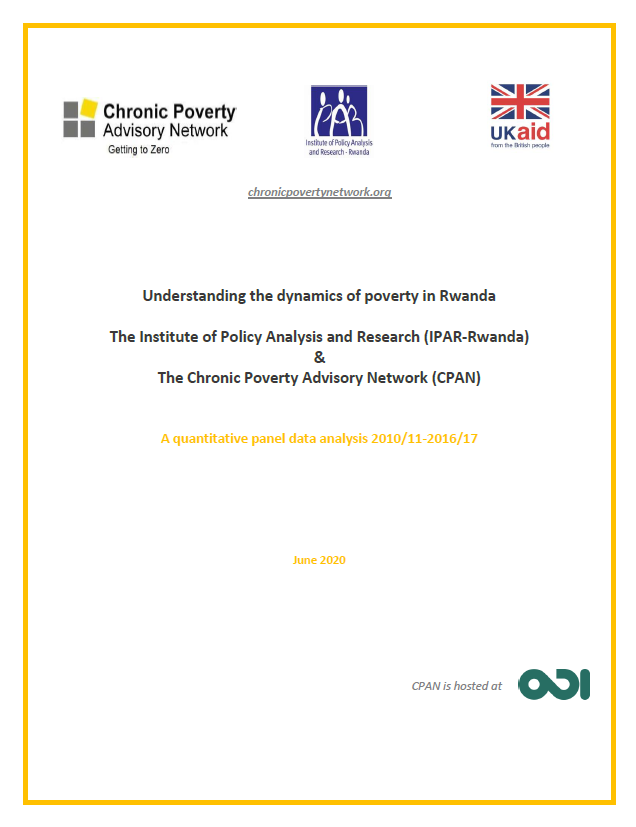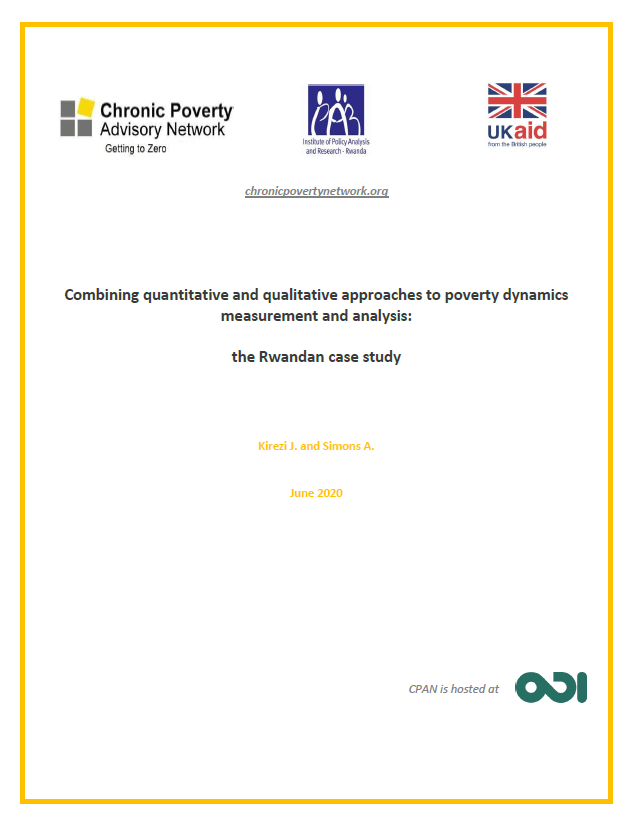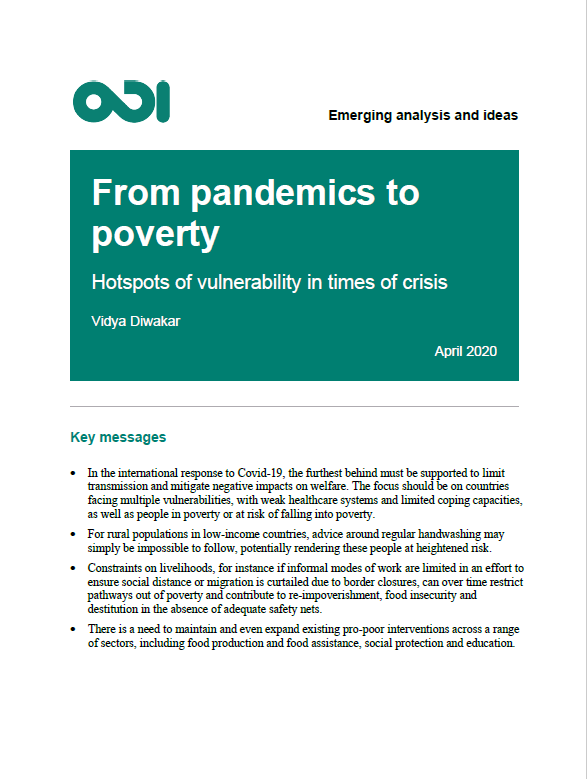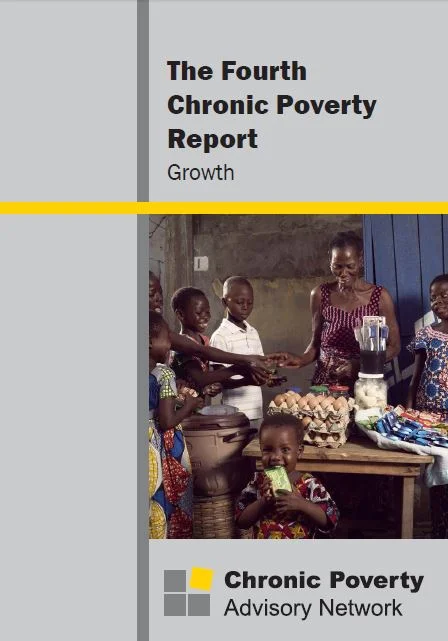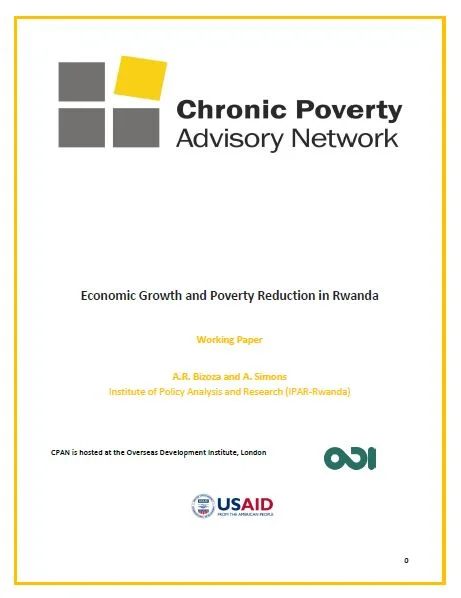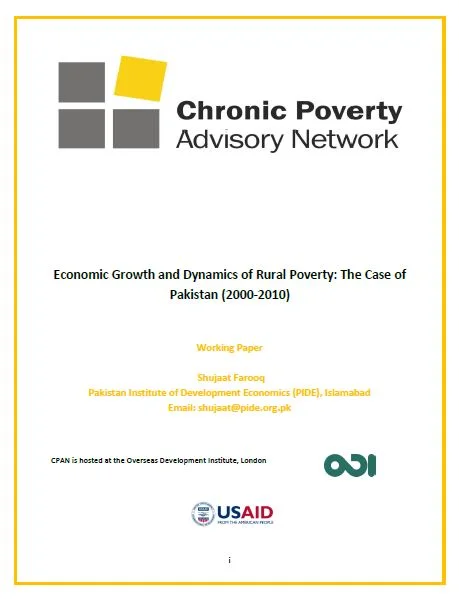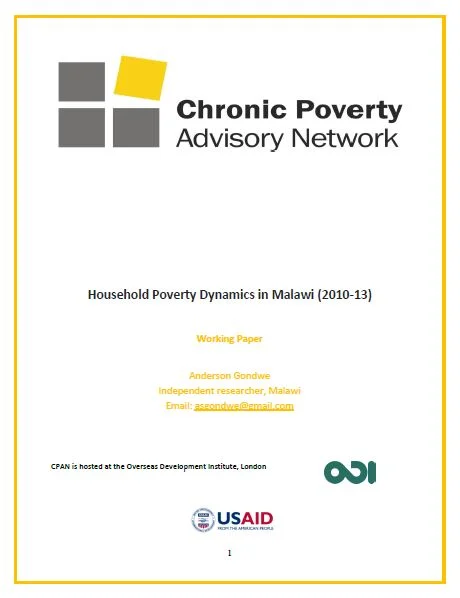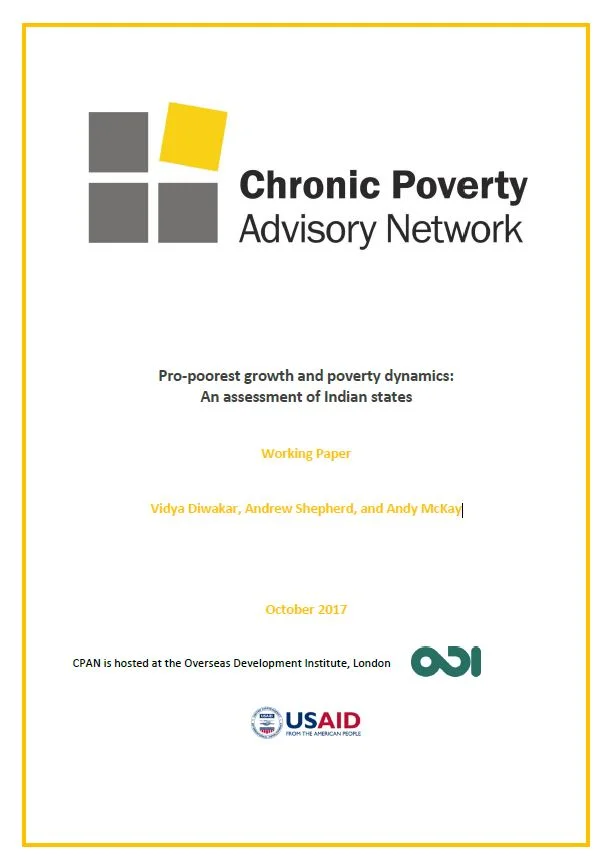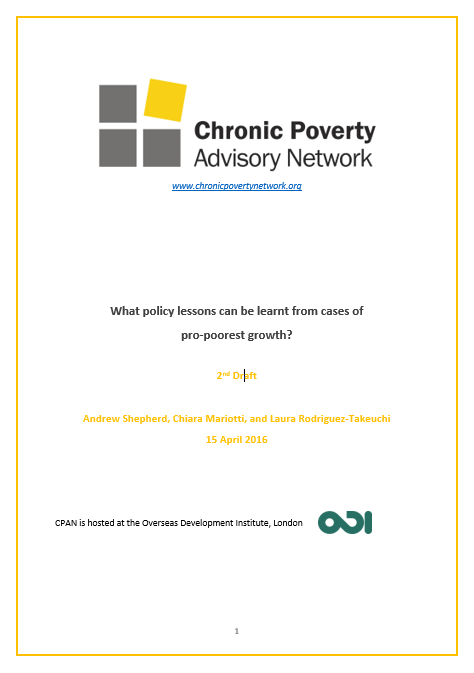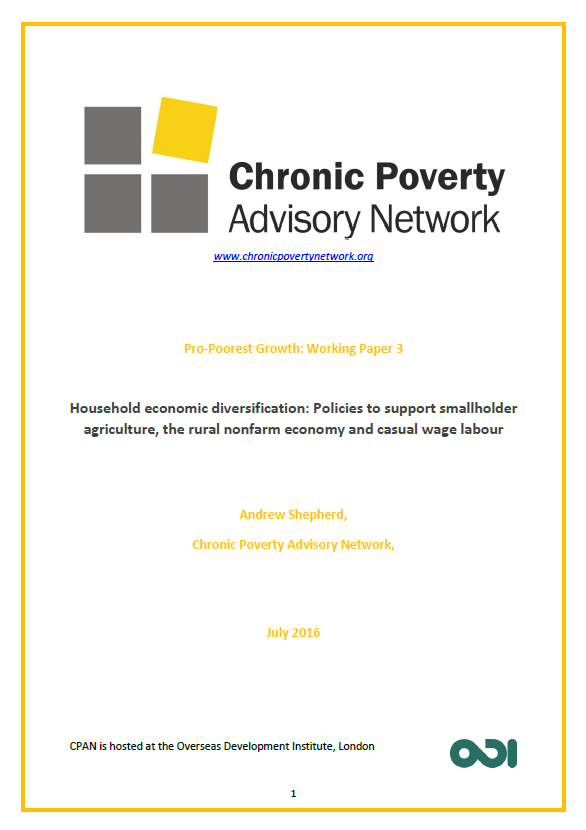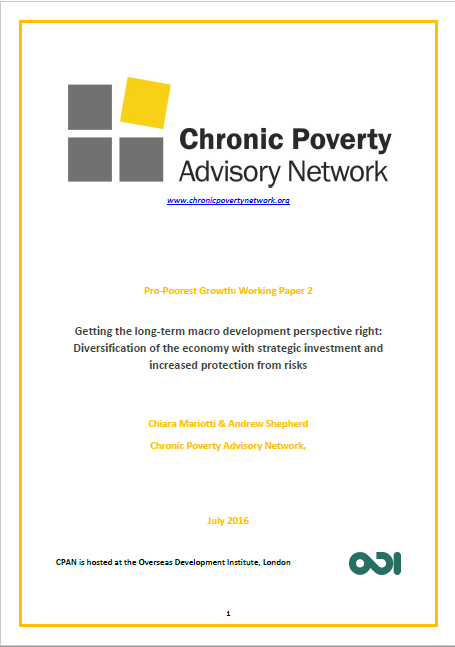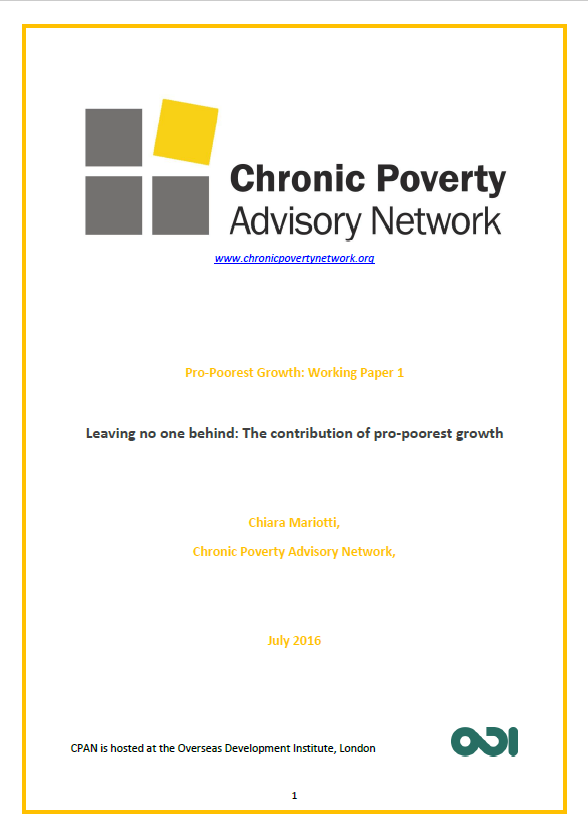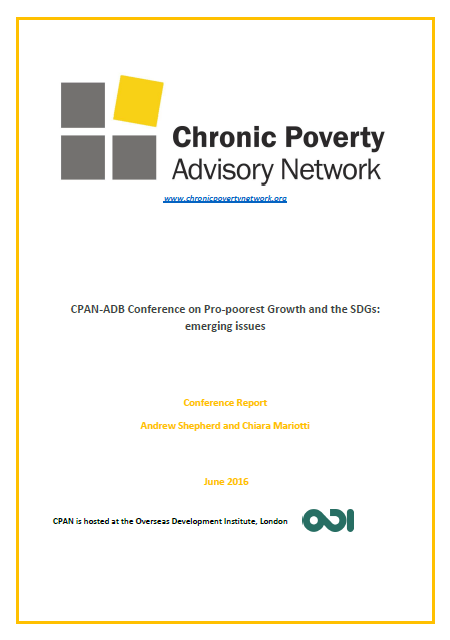The 2014–15 Chronic Poverty Report: the road to zero extreme poverty argued that three objectives had to be achieved to get to zero poverty: chronic poverty had to be tackled; impoverishment had to be stopped; and escapes from poverty needed to be sustained. The report identified 14 policy areas that could be critical for the eradication of extreme poverty and leaving no one behind in the process. These can also be clustered into four pillars: human development, pro-poorest growth, transformative social change and resilience.
This paper provides a reasonably comprehensive basis for identifying policies that will contribute to leaving no one behind, since the chronically poor are, by definition, those who are getting left behind in the process of development. Of course, among the chronically poor are those who are able to make progress and sustain escapes from poverty; there are also those who are stuck on the consumption floor, which has barely moved in several decades, some of whom may be experiencing ‘intersecting inequalities’ (those pertaining to different attributes like age, religion, gender, embodied in the same person) – or, in simpler terms, those who experience multiple disadvantages.
This paper explores context through a re-categorisation of countries using income levels, institutional fragility and progress on poverty, and an analysis of countries’ policy frameworks in 2015. It then explores the above priorities in context, and in each policy area outlines key measures that will underpin progress and enhance access for the poorest and most marginalised.
The aim of this analysis is to stimulate debate as to what policy mix is appropriate, necessary and desirable in different country circumstances. Once policies have been selected, policy consistency over time, as well as their sequencing; cross-government coordination to ensure delivery of the right combinations; and multi-stakeholder partnerships for implementation are indispensable tools to reach the objective of LNOB and achieve the SDGs for all. Governments vary in the extent to which they have such mechanisms in place and allow them to influence policy and implementation.
Authors: Andrew Shepherd and Kate Bird with Moizza Binat Sarwar
